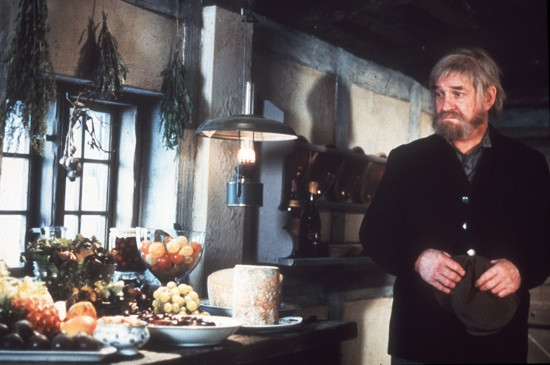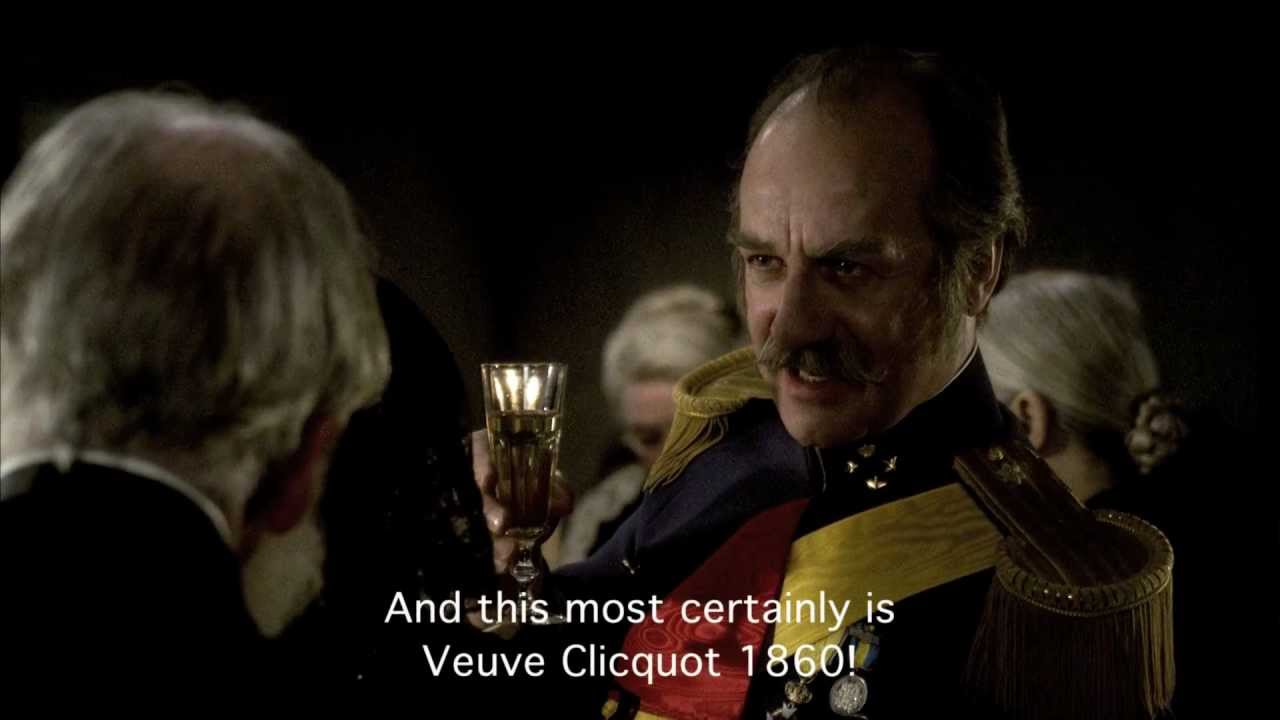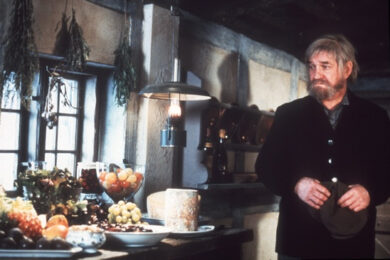Written and directed by Gabriel Axel (and based on the Isak Dinesen short story) Babette’s Feast appears at times to be a quintessentially austere slice of Scandinavian cinema, but at its core is a rich and humorous narrative that smartly weaves a plot of haphazard cause and effect around its ensemble cast. In places this could look Dreyer-esque, but it’s fluffier around the edges. The movie might not be groundbreaking but it certainly is heartwarming.
The story is much in the mode of Michael Radford’s wonderful Il Postino: a displaced, culturally exotic foreigner opens the eyes of the local community, somewhat loosening their moral code and freeing them to look beyond their own insular community. Where poetry and the power of the written word serves as the catalyst for such minor upheavals in Il Postino, within Babette’s Feast it is the high end delights of French cookery that help to reform the local grumblers.
Babette (Stéphane Audran), a French exile, arrives in this small village on the Jutland peninsula and proceeds to cook up the titular storm. However, before the arrival of our heroine there is a quite wonderful engagement with the ebbs and flows of this local community. Axel smartly and succinctly interweaves a pair of love stories that introduce two other central characters, elderly twin sisters Martine and Filippa (Birgitte Federspiel and Bodil Kjer), while simultaneously giving us a rich insight into the local ways of life.
The film opens with the elderly duo tottering around the windswept village, preaching their deceased father’s Christian teachings. We then flash back 49 years to discover why they have only each other’s companionship in their waning years. We are introduced to two of the women’s suitors, one a Swedish cavalry officer and the other a Parisian baritone. Both attempt to win the affections of the twins, but any advances are ultimately thwarted by the cocooned Christian sect run by the local pastor – also the pair’s father.
In a quitely comedic dinner scene we witness the stilted interactions between the Swedish cavalry officer, the twins and their austere father. Within this sequence Axel uses much tableau frontal framing, with characters almost lined up in front of the camera. Such framing has a lineage within Scandinavian cinema, though where the likes of Dreyer or Bergman used this stylistic strategy very seriously – for example to underscore a tensely organised religious group or family unit (Ordet being a prime example, and a neat counterpoint to Babette) – Axel has pure comedic value in mind. If frontal framing within Dreyer’s works smacks of austerity then within Axel’s picture it is present to reflect, much more simply, the laughably awkward interactions between the family and the officer. These interactions around tables and the stylistic strategies that the director uses to present them are perhaps the most rewarding sequences of the entire film.
With the suitors’ attempts thwarted we switch back into the present, and on to Babette’s arrival. However, Babette doesn’t simply wade into the community and begin upturning tradtion, one of the many annoying aspects of 2000’s saccharine Chocolat, another movie in the cultural displacement mode. Rather Babette patiently works for the twins as a cook and cleaner, humorously grimacing yet continually preparing a variety of bland, greyish meals over what seems to be several years. She meshes into the community and, aside from the restrained gastronomic situation, seems to feel quite at home.
However, after several years and an instance of significant financial gain, Babette feels it’s high time to give something back to the community. The final half hour is a full-blown account of her feast, the vast majority of which is shot in luxurious, softly lit close up. Throughout the meal, enjoyed by several of the locals, there is an unspoken acceptance that a little decadence is perfectly acceptable.
Babette’s Feast is perhaps the perfect winter warmer, a nice primer to enter into the festive period. It never has pretensions to provide grand ideas and grand messages, and is all the better for it.
The new digital transfer of Babette’s Feast goes on nationwide theatrical release from Friday December 14; a full list of screenings can be found here.




